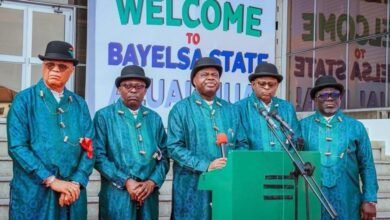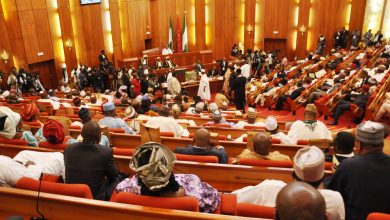
Under the leadership of Wale Edun, Nigeria’s Minister of Finance and Coordinating Minister of the Economy, the country is beginning to witness tangible signs of economic stabilization, reform momentum, and a return of investor confidence. While economic challenges persist, the bold steps being taken at the federal level are laying a solid foundation for sustainable growth, job creation, and industrial revival—offering Nigerians a compelling reason to remain hopeful.
At the 2025 IMF-World Bank Spring Meetings in Washington D.C., Mr. Edun led a high-powered Nigerian delegation that included the Governor of the Central Bank, CEOs of major financial institutions, and representatives from the private sector and civil society. Nigeria used the global platform to reinforce its reform credentials, demonstrate fiscal discipline, and deepen ties with international development partners.
Mr. Edun made a strong case for Nigeria’s ambitious economic reforms: the removal of unsustainable fuel subsidies, liberalization of the foreign exchange market, and cessation of the Central Bank’s monetary financing of government deficits. These measures, though tough, are already yielding results—narrowing fiscal gaps, stabilizing the Naira, and improving the trade balance.
Nigeria’s commitment to reform did not go unnoticed. Multilateral institutions such as the IMF and World Bank recognized Nigeria as a leading example of a country taking the right policy steps in the face of economic adversity. The IMF’s most recent Article IV consultation in April 2025 acknowledged Nigeria’s progress and revised the country’s growth forecast upward to 3.34% for 2024, citing improved macroeconomic management and resilience.
These green shoots are already restoring investor confidence. International credit rating agency Fitch recently upgraded Nigeria’s outlook from “Negative” to “Stable”—a clear endorsement of the government’s reform trajectory. The reforms, particularly in the energy and forex sectors, are creating a more predictable investment climate that is crucial for new capital inflows, industrial expansion, and job creation.
At the Nigeria Investment Forum held on the sidelines of the IMF meetings, Edun presented a compelling case for Nigeria’s readiness to receive investment. He cited infrastructure initiatives such as the rollout of 90,000 km of fibre optic cable and the private-sector-led construction of 4,000 km of roads. He also emphasized increased productivity mandates for state-owned enterprises like the NNPC, which is currently undergoing a forensic audit to improve transparency and efficiency.
A major highlight of Edun’s work has been Nigeria’s recent accession to the Asian Infrastructure Investment Bank (AIIB) as a non-regional member. This strategic move will expand Nigeria’s access to global financing for critical sectors such as energy, transportation, and digital infrastructure, while also opening new channels of Asian investment into Nigeria’s economy.
These policy efforts are targeted at rebuilding the nation’s industrial base, unlocking youth employment, and strengthening the local manufacturing sector. With improved fiscal and monetary coordination, Nigeria is steadily becoming a more attractive destination for both domestic and international investors seeking to establish or scale factories. These investments are expected to boost local production, reduce import dependency, and create much-needed jobs.
The global economic landscape remains uncertain, but Nigeria’s current economic management inspires cautious optimism. Wale Edun’s pragmatic approach—anchored on transparency, reform, and engagement—is helping the country regain its footing. For everyday Nigerians, these efforts offer a glimpse into a more stable and prosperous future, where policy consistency and private-sector growth can translate into real economic benefits.
The road ahead is still long, but the direction is clear. Under President Tinubu’s administration and with Mr. Wale Edun at the helm of the economy, Nigeria is turning the corner. With continued reform, support from international partners, and a renewed focus on inclusive growth, the economy is poised to unlock its full potential—and Nigerians should remain hopeful.
– Bernard Okri – Global Economic Policy Initiative (GEPIn)




